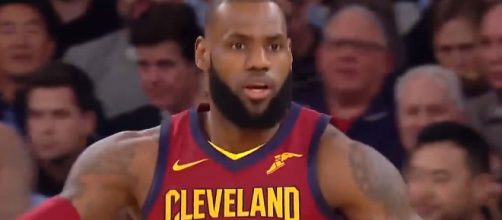After the trade of Kyrie Irving, Kevin Love’s scoring average was expected to increase. But that did not happen in the first 14 games of the Cleveland Cavaliers. In fact, compared to last season, Love’s scoring average is currently down by 1.4 points.
Not that he’s inconsistent – Kevin Love is the Cavaliers’ second-leading scorer, next only to LeBron James (of course). But setting aside that game against the Atlanta Hawks where Love scored only 4 points before being sent to the hospital because of flu, Love’s low production were often against teams with dominant big men.
And that’s one of the biggest problems the Cleveland Cavaliers will face at least in their next three games.
Small-ball problem
The small-ball combination of Kevin Love, Jae Crowder, and LeBron James may be effective against other teams like the Boston Celtics and Golden State Warriors. But the games against New Orleans Pelicans and New York Knicks showed the Cavaliers’ defensive problems against teams with dominant big men.
The pairing of Anthony Davis and DeMarcus Cousins, and Kristaps Porzingis and Enes Kanter forced coach Ty to insert Tristan Thompson into the starting lineup. But even his big frame was not enough to stop the opponent’s twin towers.
Thompson is not expected to join the Cleveland Cavaliers when they visit Charlotte Hornets tonight so expect Dwight Howard and Cody Zeller to dominate the boards.
Same goes when LeBron James and the rest of the Cavaliers play the DeAndre Jordan, Blake Griffin and Los Angeles Clippers, and Andre Drummond and the Detroit Pistons.
Faster, sharper offense
Before the season started, Cavs coach Ty Lue decided to implement a small-ball lineup to familiarize and adapt to the NBA’s latest playing style of basketball. This was also to prepare the team for a possible rematch – the fourth – with the Golden State Warriors in the NBA Finals. However, there’s a problem with the execution.
Small-ball style is synonymous with faster execution, faster ball movement. While their win-loss record doesn’t reflect it, the Cavaliers are successful with transition plays. Their efficiency rating is at 66.3 percent when attacking the basket within 18-22 shot clock range; 61.4 percent within 15-18, according to NBA Stats.
The problem is that this only happens about 15.4 and 20.9 percent, respectively. More often, transition plays are results of better defense, something the Cavaliers have yet to showcase this season.
In addition, small-ball can be successful with good outside shooting. Currently, the Cavaliers are tied at 18th and 19th spot with the Dallas Mavericks on 3-point shooting percentage with 35.4 percent. Last season, the Cavaliers led the league in 3-point shooting percentage.
Oldest players in the league
Losing four in a row to teams which they could easily beat last season put the Cleveland Cavaliers onto the spotlight. And according to basketball experts and analysts, one of the problems is their slow transition on defense.
Blame it on age or not, but the Cavaliers have the oldest average age of players (29.5). In fact, there are only two players below the age of 25: Cedi Osman (22) and Ante Zizic (20). Seven players are north of 30 years old: Kyle Korver (36), Jose Calderon (36), Dwyane Wade (34), Channing Frye (34), LeBron James (32), JR Smith (32), and Jeff Green (31).
And then there’s the Cavaliers’ injury list. Topping the list is the much-awaited arrival of Isaiah Thomas which will happen sometime in January. There’s Derrick Rose who is on-and-off the injury list. The good news is that Tristan Thompson is expected to return after one or two weeks.


